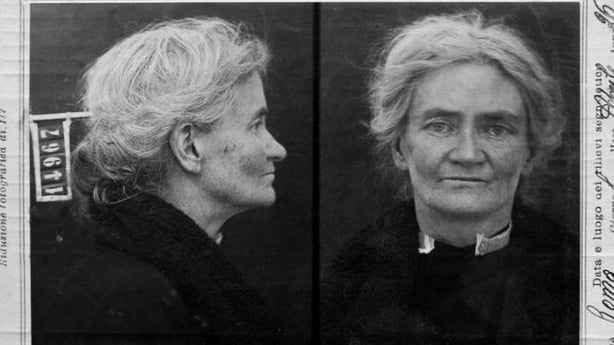A plaque has been unveiled in memory of the Irishwoman who attempted to assassinate Italian Fascist leader Benito Mussolini almost 100 years ago.
The memorial to Violet Gibson was erected at 12 Merrion Square in Dublin, which was her childhood home.
On 7 April 1926, three years into his fascist rule, Mussolini was making a speech in Rome.
The then 50-year-old Gibson stepped out of the crowd and with a pistol and shot him at point blank range.

He is said to have turned his head, and the bullet grazed his nose.
She fired again, but the gun jammed.
Police had to save her from the crowds and she was eventually deported to England.
She was detained in a psychiatric hospital for the rest of her life, despite repeated pleas for release.
We need your consent to load this rte-player contentWe use rte-player to manage extra content that can set cookies on your device and collect data about your activity. Please review their details and accept them to load the content.Manage Preferences
She died in 1956 and is buried in England.
The plaque was proposed by Independent Councillor Mannix Flynn, who described her as an anti-fascist revolutionary.
He said: "It is now time to bring Violet Gibson into the public eye and give her a rightful place in the history of Irish women and in the history of the Irish nation and its people."
Gibson was born in Dalkey, Dublin in 1876 into a wealthy Anglo-Irish family.
She converted to Catholicism and in her 20s travelled extensively. She is said to have had a strong commitment to social justice.

Lord Mayor of Dublin Caroline Conroy described Violet Gibson as a Dubliner who suffered from misogyny and from the stigma surrounding mental illness.







